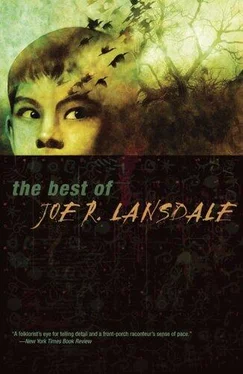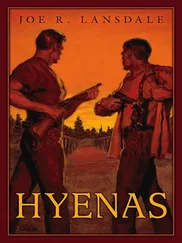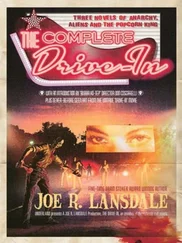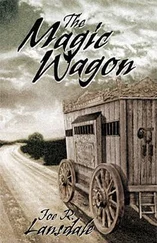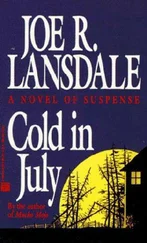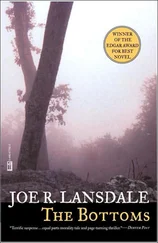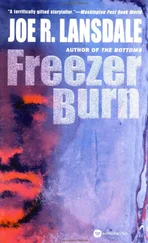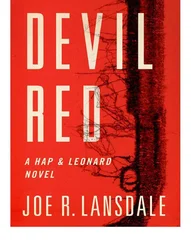Forrest put his hat on. “Have it your way, nigger.” He turned and walked away.
“Lil” Arthur started inside the house, but before he could open the door, his father, Henry, came out. He dragged his left leg behind him as he came, leaned on his cane. He wore a ragged undershirt and work pants. He was sweaty. Tired. Gray. Grayer yet in the muted moonlight.
“You ought not talk to a white man that way,” Henry said. “Them Ku Kluxers’ll come ‘round.”
“I ain’t afraid of no Ku Kluxers.”
“Yeah, well I am, and we be seein’ what you say when you swingin’ from a rope, a peckerwood cuttin’ off yo balls. You ain’t lived none yet. You ain’t nothin’ but twenty-two years. Sit down, boy.”
“Papa, you ain’t me. I ain’t got no bad leg. I ain’t scared of nobody.”
“I ain’t always had no bad leg. Sit down.”
“Lil” Arthur sat down beside his father. Henry said, “A colored man, he got to play the game, to win the game. You hear me?”
“I ain’t seen you winnin’ much.”
Henry slapped “Lil” Arthur quickly. It was fast, and “Lil” Arthur realized where he had inherited his hand speed. “You shut yo face,” Henry said. “Don’t talk to your papa like that.”
“Lil” Arthur reached up and touched his cheek, not because it hurt, but because he was still a little amazed. Henry said, “For a colored man, winnin’ is stayin’ alive to live out the time God give you.”
“But how you spend what time you got, Papa, that ain’t up to God. I’m gonna be the Heavyweight Champion of the World someday. You’ll see.”
“There ain’t never gonna be no colored Champion of the World, ‘Lil’ Arthur. And there ain’t no talkin’ to you. You a fool. I’m gonna be cuttin’ you down from a tree some morning, yo neck all stretched out. Help me up. I’m goin’ to bed.”
“Lil” Arthur helped his father up, and the old man, balanced on his cane, dragged himself inside the shack.
A moment later, “Lil” Arthur’s mother, Tina, came out. She was a broad-faced woman, short and stocky, nearly twenty years younger than her husband.
“You don’t need talk yo papa that way,” she said.
“He don’t do nothin’, and he don’t want me to do nothin’,” “Lil” Arthur said.
“He know what he been through, Arthur. He born a slave. He made to fight for white mens like he was some kinda fightin’ rooster, and he got his leg paralyzed cause he had to fight for them Rebels in the war. You think on that. He in one hell of a fix. Him a colored man out there shootin’ at Yankees, ‘cause if he don’t, they gonna shoot him, and them Rebels gonna shoot him he don’t fight the Yankees.”
“I ain’t all that fond of Yankees myself. They ain’t likin’ niggers any more than anyone else.”
“That’s true. But, yo papa, he right about one thing. You ain’t lived enough to know nothin’ about nothin’. You want to be a white man so bad it hurt you. You is African, boy. You is born of slaves come from slaves come from Africa.”
“You sayin’ what he’s sayin’?”
“Naw, I ain’t. I’m sayin’, you whup this fella, and you whup him good. Remember when them bullies used to chase you home, and I tell you, you come back without fightin’, I’m gonna whup you harder than them?”
“Yes ma’am.”
“And you got so you whupped ‘em good, just so I wouldn’t whup yo ass?”
“Yes ma’am.”
“Well, these here white men hire out this man against you, threaten you, they’re bullies. You go in there, and you whup this fella, and you use what God give you in them hands, and you make your way. But you remember, you ain’t gonna have nothin’ easy. Only way a white man gonna get respect for you is you knock him down, you hear? And you can knock him down in that ring better than out here, ‘cause then you just a bad nigger they gonna hang. But you don’t talk to yo papa that way. He better than most. He got him a steady job, and he hold this family together.”
“He’s a janitor.”
“That’s more than you is.”
“And you hold this family together.”
“It a two-person job, son.”
“Yes, ma’am.”
“Good night, son.”
“Lil” Arthur hugged her, kissed her cheek, and she went inside. He followed, but the smallness of the two-room house, all those bodies on pallets — his parents, three sisters, two brothers, and a brother-in-law — made him feel crowded. And the pigeons sickened him. Always the pigeons. They had found a hole in the roof — the one that had been covered with tar paper — and now they were roosting inside on the rafters. Tomorrow, half the house would be covered in bird shit. He needed to get up there and put some fresh tar paper on the roof. He kept meaning to. Papa couldn’t do it, and he spent his own time training. He had to do more for the family besides bring in a few dollars from fighting.
“Lil” Arthur got the stick they kept by the door for just such an occasion, used it to roust the pigeons by poking at them. In the long run, it wouldn’t matter. They would fly as high as the roof, then gradually creep back down to roost. But the explosion of bird wings, their rise to the sky through the hole in the roof, lifted his spirits.
His brother-in-law, Clement, rose up on an elbow from his pallet, and his wife, “Lil” Arthur’s sister Lucy, stirred and rolled over, stretched her arm across Clement’s chest, but didn’t wake up.
“What you doin’, Arthur?” Clement whispered. “You don’t know a man’s got to sleep? I got work to do ‘morrow. Ain’t all of us sleep all day.”
“Sleep then. And stay out of my sister. Lucy don’t need no kids now. We got a house full a folks.”
“She my wife. We supposed to do that. And multiply.”
“Then get your own place and multiply. We packed tight as turds here.”
“You crazy, Arthur.”
Arthur cocked the pigeon stick. “Lay down and shut up.”
Clement lay down, and Arthur put the stick back and gathered up his pallet and went outside. He inspected the pallet for bird shit, found none, stretched out on the porch, and tried to sleep. He thought about getting his guitar, going back to the beach to strum it, but he was too tired for that. Too tired to do anything, too awake to sleep.
His mother had told him time and again that when he was a baby, an old Negro lady with the second sight had picked up his little hand and said, “This child gonna eat his bread in many countries.”
It was something that had always sustained him. But now, he began to wonder. Except for trying to leave Galveston by train once, falling asleep in the boxcar, only to discover it had been making circles in the train yard all night as supplies were unloaded, he’d had no adventures, and was still eating his bread in Galveston.
All night he fought mosquitoes, the heat, and his own ambition. By morning he was exhausted.
WEDNESDAY, SEPTEMBER 5, 10:20 A.M.
Telegraphed Message from Washington, D.C., Weather Bureau, Central Office, to Issac Cline, Galveston, Texas, Weather Bureau:
Disturbance center near Key West moving northwest. Vessels bound for Florida and Cuban ports should exercise caution. Storm likely to become dangerous.
10:23 A.M.
McBride awoke, fucked the redhead, sat up in bed, and cracked his knuckles, said, “I’m going to eat and train, Red. You have your ass here when I get back, and put it on the Sportin’ Club’s bill. And wash yourself, for heaven’s sake.”
“Yes sir, Mr. McBride,” she said.
McBride got up, poured water into a washbasin, washed his dick, under his arms, splashed water on his face. Then he sat at the dresser in front of the mirror and spent twenty minutes putting on the Chinaman’s remedy and combing his hair. As soon as he had it just right, he put on a cap.
Читать дальше
